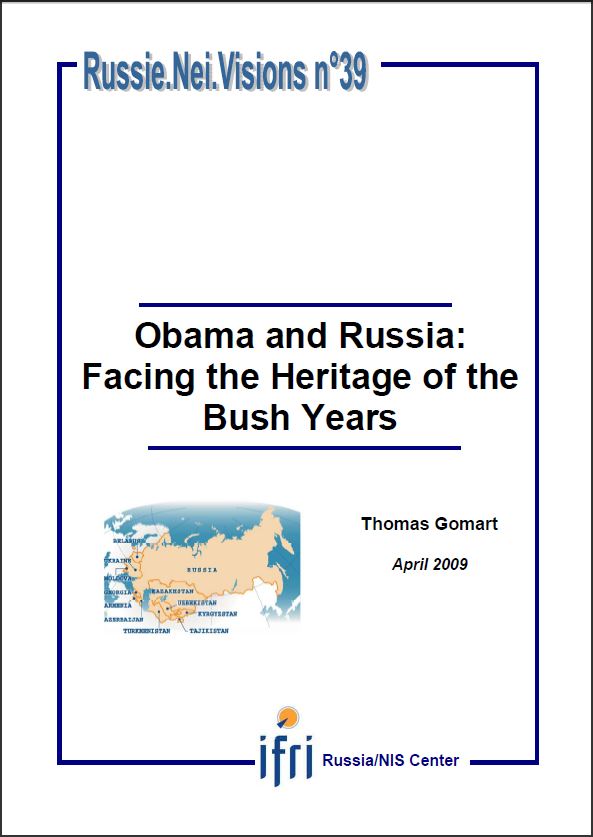Obama and Russia: Facing the Heritage of the Bush Years

Barack Obama's recent overtures toward Russia show a desire to break away from the Bush years, which were characterized by a profound deterioration in American-Russian relations. To gauge the chances of success for this openness, we must reexamine the Bush legacy weighing on the resumption of relations, especially on their strategic dimension. Indeed, direct exchanges between the two countries over the course of the past eight years have increasingly turned towards head-on opposition. Indirect exchanges between the two states in Russia's neighborhood also display contradictory influences, with Iran and Georgia bringing to light deep-rooted differences fuelled by cold war-style rhetoric. In other words, even if Barack Obama appears to be imposing his own style by reorienting America's foreign policy, his scope for action is partly limited by the legacy of his predecessor.
Download the full analysis
This page contains only a summary of our work. If you would like to have access to all the information from our research on the subject, you can download the full version in PDF format.
Obama and Russia: Facing the Heritage of the Bush Years
Related centers and programs
Discover our other research centers and programsFind out more
Discover all our analysesRussia, the Palestinians and Gaza: Adjustments after October 7th
The Soviet Union (USSR), and subsequently the Russian Federation as its internationally recognized legal successor, has consistently sought to play a visible role in efforts to resolve the Israeli-Palestinian conflict.
Deathonomics: The Social, Political, and Economic Costs of War in Russia
The report attempts to outline and examine a truly new phenomenon in Russian society, dubbed “deathonomics”—the making of a mercenary army against the backdrop of the Kremlin’s war in Ukraine, eventually replacing both the Soviet (conscript) and early new Russian (contract) armies. It notes that, by the end of 2023, this trend had turned the military service into one of the highest-paying professions in the country, something not seen in Russia on such a scale since the late 17th century.
Russia's Asia Strategy: Bolstering the Eagle's Eastern Wing
Among Russia’s strategic priorities, Asia traditionally played a secondary role compared to the West. In the mid-1990s, then Foreign Minister Yevgeny Primakov initiated a rapprochement with China and India. Then, in 2014, deteriorating relations between Russia and the West prompted Moscow to begin its “great pivot to the East”.
Kazakhstan After the Double Shock of 2022: Political, Economic and Military Consequences
The year 2022 represented a dual shock for Kazakhstan. In January, the country faced its most severe political crisis since independence, followed in February by Russia’s full-scale invasion of Ukraine, which cast uncertainty over the borders of post-Soviet states. These consecutive crises profoundly shaped Kazakhstan’s domestic and foreign policy.












